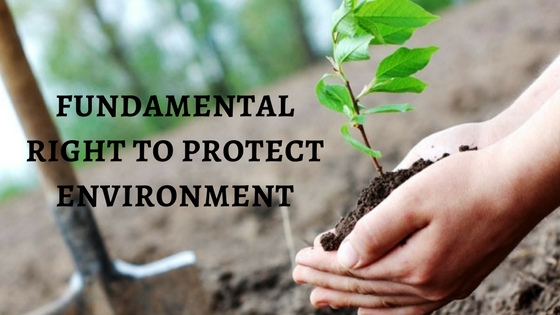Aapka Consultant Judgment Series- In this series, we are providing case analysis of Landmark Judgments of Hon’ble Supreme Court of India.
Rural Litigation and Entitlement Kendra Dehradun and Ors v. State of U.P. & Ors
AIR 1985 SC 652, [1985] 2 SCC 431
JUDGES: P.N. Bhagwati, Amarendra Nath Sen and Rangnath Misra
Date of Decision: 12-03-1985
FACTS:-
An application cum letter filed by the petitioner bringing focus to disturbance of ecology and pollution and affectation of air, water and environment by reason of mining operations or stone crushers or lime kilns in the Mussoorie Hill range. Believing, first case of its kind in the country involving issues relating to environment and ecological balance and the concern arising for considerations for the welfare of the country, the Supreme Court set up Bhargav Committee to inspect the limestone quarries situated in the area. After inspection, Bhargav Committee divided the quarries into three categories as category A quarries with less harmful effect and most suitable; category B quarries relatively more pronounced and category C quarries of more serious nature. The Working Group committee appointed by the state government also submitted their reports for consideration before this Court. Looking into the voluminous number of applications; Court preferred to pass order in this writ petition with reasons to be set out in the judgement later.
ISSUES
- Whether a letter can be considered as writ petition under Article 32 of the Constitution?
- Whether Article 21 guarantees fundamental right to protect environment?
JUDGEMENT:-
The Supreme Court considered the letter challenging the environmental degradation into a writ petition under the Article 32 of the Constitution. It was noticed that state government was also aware of the pollution in the town and thereby appointed Working Group which listed the quarries into categories namely category 1 considered suitable for continuance of mining operations and category 2 considered unsuitable for further mining. This report was kept open for consideration before the apex court. On detailed examination of the reports submitted by both the committees, it was found that both the committees came to the same conclusion as to the category A and category 1 of the quarries of least harmful. Category C and category 2 of the reports comprising quarries of serious nature except of the quarries listed in category B of the Bargava committee which need not to be closed down but observed impact was more pronounced but Working Group committee considered it to be not suitable for mining at all.
On the recommendations of the Bargava Committee, court classified category A and 1 of the respective reports into – one which fall within the limits of the city and second, which fall outside the limits of city and appointed second committee called Bandyopadhyay Committee to evaluate the overall status of these quarries. Till the final conclusion of the committee, the court ordered the immediate closure of the dangerous limestone quarries listed under category B and 2 along with those within the limits of town under category A and 1. Also, it was directed to the District Authorities to keep eye-watch on such quarries. Prior to that, order for the closure of the quarries in category C was made. Further, it was directed to regulate quarries under the provisions of Mines Act 1952, the Metalliferous Mines Regulations, 1961 and other relevant statutes, rules and regulations.
However, in order to mitigate the hardship caused due to the consequences of this order, the court laid down following directions:
- The government has to intimate and gave priority to the owners affected by the order of this court to apply for the grant of the lease.
- The workmen of the effected quarries will be provided employment in the afforestation and soil conservation programme to be taken up in their area.
Hence, The Supreme Court disposed of this case with aforementioned directions not only on legal points of view but also because this is the first case of its kind in the country involving issues relating to environment and ecological balance and the questions arising for considerations are of grave moment and significance for the country.
HELD:-
The constitution under Article 21 guarantees the fundamental right to protect the environment and maintain ecological balance for the welfare of the country.
To Get Legal Opinion from Advocates/ Legal Experts, Please click here
To Get Legal Opinion from Retired Hon’ble Judges, Please click here












